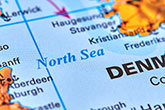Oil and gas: Algeria
Advertisement
Overview
- Algeria is the leading natural gas producer in Africa, the second largest natural gas supplier to Europe outside of the region and one of the top three oil producers in Africa.
- Hydrocarbon revenues account for approximately 30% of GDP.
- Oil and natural gas export revenues accounted for approximately US$ 63.8 billion last year.
- Crude oil and gross natural gas production have gradually declined in recent years.
- The Algerian government enacted new contractual and fiscal provision sin 2013 in hopes of attracting more foreign investment to new projects, particularly toward unconventional assessments.
- Algeria is estimated to hold the third largest amount of shale gas resources in the world.
- Algeria contains 707 trillion ft3 and 5.7 billion bbls of technically recoverable shale gas and oil resources, respectively.
- The 2013 militant attack on the In Amenas gas facility prompted security concerns about operating in Algeria’s remote areas, particularly in the south.
- Algeria relies on its own oil and natural gas production for domestic consumption, which is heavily subsidised.
- Natural gas and oil account for almost all of Algeria’s total primary energy consumption.
- Natural gas accounts for 98% of power generation.
- The government is attempting to reduce the country’s dependence on natural gas in the power sector by initiating more renewable energy projects.
- Algeria’s oil and natural gas industries are governed by the Hydrocarbon Act of 2005.
- In 2013 parts of the hydrocarbon law were revised in an attempt to attract foreign investors to new projects.
- Sonatrach owns approximately 80% of total hydrocarbon production in Algeria.
- Militant groups operating in North Africa and the Sahel have presented security risks to oil and natural gas installations in the region.
Oil and oil products
- As of January 2014, Algeria was estimated to hold 12.2 billion bbls of proved crude oil reserves. This estimate has been unchanged for many years.
- All proved oil reserves are held onshore.
- Hassi Messaoud is estimated to hold 3.9 million bbls of proved and probable recoverable reserves.
- According to Sonatrach, roughly two thirds of Algerian territory remains underexplored or unexplored.
- Algeria produced approximately 1.2 million bpd of crude oil in 2013.
- Algerian oilfields produce high quality light crude oil with very low sulfur and mineral content.
- Algeria does not have any major crude oil projects scheduled to come onstream.
- The country exports mostly light crude oil.
- In 2013, Algeria exported approximately 750 000 bpd of crude oil, including condensate.
- Most crude exports are sent to Europe, with the remainder to the Americas and Asia & Oceania.
- US crude oil imports from Algeria have substantially declined in recent years.
- There are five oil refineries in Algeria with a nameplate capacity of 652 500 bpd.
- The Skikda refinery is the country’s largest and has a processing capacity of 352 700 bpd of crude oil and condensate.
- The vast majority of Algeria’s domestic petroleum consumption is derived from domestically refined products.
- Petroleum consumption has increased by an average of 5% /y over the past decade.
- Algeria typically produces a surplus of refined petroleum products.
- In 2013, the country exported approximately 200 00 bpd of petroleum products.
- Algeria imports petroleum products, mainly from European countries and Russia.
- Algeria uses multiple coastal terminals to export crude oil, refined products, LPG and NGPL.
Natural gas
- As of January this year, Algeria had 159 trillion ft3 of proved natural gas reserves, the tenth largest in the world.
- Algeria holds vast untapped shale resources.
- Algeria contains 707 trillion ft3 of technically recoverable shale gas resources.
- Gross natural gas production was 6.4 trillion ft3 in 2012.
- Algeria is in the process of developing the Southwest Gas Project.
- Algeria exports natural gas via pipelines and on tankers in the form of LNG.
- Algeria’s LNG plants are located in the coastal cities of Arzew and Skika.
- Algeria was the first country to export LNG in 1964.
- In 2013, Algeria was the seventh largest LNG exporter in the world, accounting for 5% of exports.
- The country’s liquefaction units have a total design capacity of 3.2 billion ft3/d.
- More than 1.7 trillion ft3 of natural gas was exported in 2012.
- Algeria is Europe’s second largest natural gas supplier outside of the region, after Russia.
- Over the past decade, Algeria’s natural gas exports have gradually declined.
- The country is facing pressure to boost natural gas output with new projects to meet growing domestic demand and to fulfil long term contractual obligations to export natural gas to Europe.
Adapted by Claira Lloyd
Read the article online at: https://www.oilfieldtechnology.com/drilling-and-production/29072014/algerian-oil-gas-eia/
You might also like
EnerMech secures two-year cranes extension in North Sea
The current agreement, which began in August 2022, will now run until at least August 2027.


